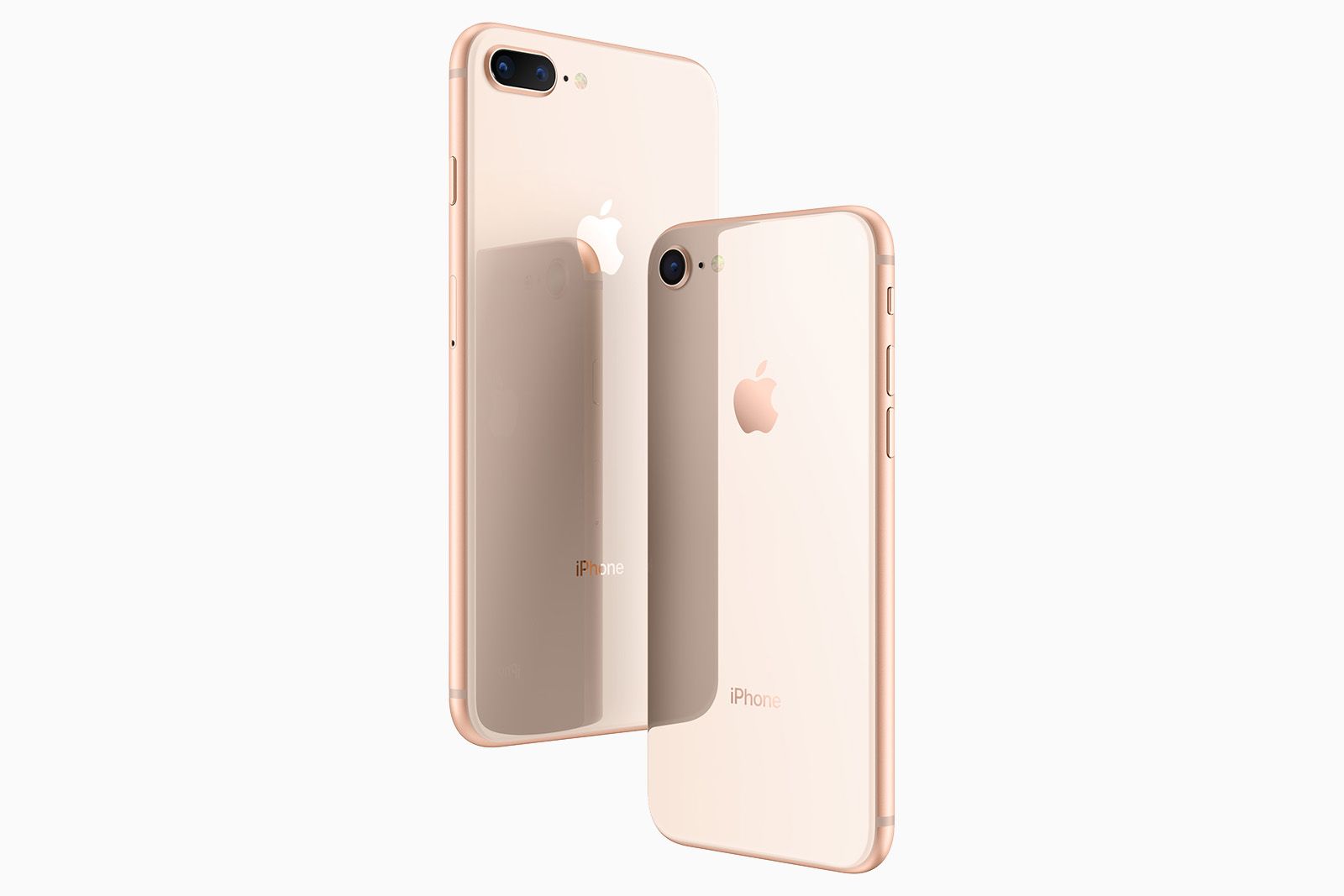Apple has announced plenty of new products for release this month and beyond, including the iPhone X. However, if you can't stretch to the latest, innovative handset - as it starts at £999 - you might want to consider an iPhone 8 or iPhone 8 Plus instead.
Both were unveiled alongside the X during Apple's event in the all-new Steve Jobs Theater and have their own merits.
- Apple iPhone X vs iPhone 8 Plus vs iPhone 8: What's the difference?
- Apple iPhone 8, 8 Plus and iPhone X: Release date, specs and everything you need to know
All-new design
Although they look similar to the last models, their design has been improved somewhat - with glass on the front and back. They'll be available in silver, space grey and gold.
There is a lot of focus on the custom aluminium alloy used, plus the internal steel and copper structure, and glass exterior. The latter uses a seven-layer colour process and is "the most durable ever on a phone".
Both phones are also sealed for water and dust resistance, and they come with new True Tone displays, which enable them to adapt colour and temperature to ambient light. Elsewhere, the phones have new stereo speakers that are 25 per cent louder than iPhone 7. They should also output deeper bass.
A11 Bionic chip
Inside the phone there's the new A11 Bionic chip, which Apple has described as the "most powerful chip ever in a smartphone". It is six-core and 64-bit, with two high-performance cores and four high-efficiency cores. It also has a new Apple-designed GPU, which should feel 30-per cent faster than the A10 chip.
The A11 also has a new image processor, with faster low-light autofocus and new hardware noise reduction.
Cameras
The standard iPhone 8 features a new 12-megapixel sensor that provides 83 per cent more light and is more power efficient. You also get optical image stabilisation.
The iPhone 8 Plus has dual 12-megapixel sensors (f1.8 and f2.8 on the telephoto). There is a new dual-camera feature called Portrait Lighting.
With it, the dual cameras sense depth and auto-adjust the lighting while you compose the shot. Apple stresses that these aren't filters; the phone is adjusting the lighting effect. There's a new menu to select the lighting effect you want to use. As for video, the iPhone 8 has the highest-quality video capture for the company yet.
Apple designed a video encoder, with faster video frame rates, so they can shoot 1080p 240fps slow-mo and 4K 60fps.
AR and wireless charging
Apple also noted that these are the first iPhones created for augmented reality, with cameras calibrated for AR. There are new gyroscopes and new sensors to enable AR. The CPU, GPU and image sensor in the A11 Bionic are all optimised for AR, as well.
It announced that the iPhone 8 has LTE Advanced, BlueTooth 5.0, and a glass back for wireless charging. It's using the Qi standard, so everything Qi certified should work with iPhone 8.
Pricing and release date
The iPhone 8 starts at £699 ($699) for the 64GB model. The iPhone 8 Plus starts at £799 ($799) for 64GB. There are also 256GB versions of both.
Pre-orders open 15 September, to ship from 22 September.
And, finally, iOS 11 is coming 19 September.

